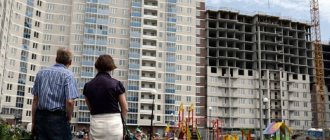“Northern” pensions: regulatory regulation
Now in the Russian Federation there are 3 main laws in accordance with which pensions are calculated:
- Law “On Insurance Pensions” dated December 28, 2013 No. 400-FZ (its provisions apply to citizens retiring after January 1, 2015);
- Law “On Labor Pensions” dated December 17, 2001 No. 173-FZ (from January 1, 2015 is valid only in terms of the provisions governing the calculation and payment of pensions that were assigned before January 1, 2015, provided that the relevant norms do not contradict the Federal Law “On Insurance Pensions” ");
- Law “On State Pension Security” dated December 15, 2001 No. 166-FZ (regulates the calculation of pensions for civil servants and other categories of citizens of the Russian Federation who are on state support).
It can be noted that in accordance with the provisions of Law No. 173-FZ, Russian pensions were calculated until 01/01/2015. Now pensioners of the Russian Federation, including residents of the North, receive a pension calculated primarily in the manner approved by the new regulatory act - Law No. 400-FZ.
The provisions of Law No. 173-FZ apply only if this is required for the purpose of calculating pensions under the new law. But when calculating specifically northern pensions, they are practically not taken into account.
Let's study the features of calculating northern pensions, taking into account the provisions of these regulations - the current law No. 400-FZ, as well as law No. 166-FZ.
Moving to a region where federal social benefits
Non-working pensioners receive a social supplement up to the subsistence level if the amount of their pension “does not reach it”.
And since the cost of living for social benefits is determined by the region of residence, moving to another region may lead to a change in pension.
If the cost of living at the new place of residence is lower than at the previous one, the social security payment is reduced - and the pension, accordingly, too.
For example, a pensioner received a regional social benefit, but moved to a region where the federal supplement (and it is always lower than the regional one) - and eventually received a reduced pension.
Early retirement in the North
First of all, it makes sense to note that citizens who worked in the North have the opportunity to retire much earlier than Russians working in more southern regions.
Thus, men who have a total length of service of 25 years and have worked in the Far North for 15 years or in regions equivalent to it for 20 years can retire at 55 years of age. Women have the right to retire at age 50, provided they have a total work experience of 20 years and the same length of work in the North as men. In turn, men who worked in more southern regions retire at 60, and women at 55.
If a man or woman has worked in the Far North as a reindeer herder, fisherman or hunter, amounting to 25 and 20 years, respectively, for each gender, they have the right to retire another 5 years earlier than the ages indicated above.
Raising the retirement age will also affect workers in the Far North. The transition period to raise the retirement age will last the same as for all residents of the Russian Federation from 2021 to 2028. Below is a table of retirement in connection with innovations:
Read more about raising the retirement age here.
Find out about the nuances of assigning pensions to northerners in ConsultantPlus. If you do not have access to the K+ system, get a trial online access for free.
What types of pension benefits are provided to northern workers?
All workers of the Russian Federation are subject to the rules established by current legislation. In particular, to compensate for income lost due to disability, it is necessary:
- Become a participant in the compulsory pension insurance system (OPI);
- Apply for accruals upon the onset of disability:
- insurance;
- social.
At the same time, the northern length of service for a pension is somewhat lower than generally accepted. That is, citizens who have worked for a sufficient period in difficult conditions can receive old-age benefits before their comrades from the southern and central regions.
Important: northerners, just like everyone else, have the right to appointments:
- according to the age;
- on disability;
- upon loss of a breadwinner;
- for state support.
Northern experience as a preference when assigning a pension
A person’s work experience in the North may give him the right to retire earlier even if the specified indicators of length of service are not achieved, but are commensurate with them.
If a citizen has worked at the CS for at least 7 years and 6 months, then he has the right to retire earlier, based on the fact that his retirement age decreases by 4 months for each year worked in the Far North. Moreover, each year of work in areas equated to the KS corresponds to 9 months of labor activity in the Far North.
In general, the length of service, which is 15 years when working at a compressor station or 20 years in areas that are equivalent to it, reduces a person’s retirement age by 5 years for most categories of workers who have grounds for retirement. For example, those categories that are specified in paragraphs. 1–10, 16–18 art. 30 of Law No. 400-FZ.
Let us now consider the basic principles of calculating northern pensions.
Peculiarities
- In order to correctly calculate the northern length of service and subsequently receive legally established preferences arising from this basis, it is necessary to legally correctly draw up an employment contract, reflecting:
- Parties;
- Contract time;
- Nature of work;
- Place of work (special importance should be given, since in some cases employers may indicate the location of the main territorial unit, which differs significantly in the scope of preferences from the northern territory where the subordinate directly works);
- In Russia, the regions with a harsh climate include 27 subjects, each of which has its own coefficient, established depending on:
- Remoteness from other regions of the country;
- Temperature/climatic conditions;
- Environmental situation;
- The influence of other unfavorable factors.
Law No. 400-FZ (“On Insurance Pensions”): northern supplement to a fixed payment
The pension according to Law No. 400-FZ consists of the following main components:
- insurance pension (calculated using a complex formula using individual pension coefficients and indicators of their value);
- fixed payment (which is established in accordance with paragraph 1 of Article 16 of Law No. 400-FZ).
The size of the insurance pension does not directly depend on whether a person worked in the North or not.
In turn, in accordance with paragraph 4 of Art. 17 of the Law “On Insurance Pensions” dated December 28, 2013 No. 400-FZ, the following persons have the right to receive a fixed payment increased by 50%:
- men who have 25 years of experience or more and have worked for 15 years or more in the Far North;
- women with 20 years of experience or more and who have worked for 15 years or more in the CS.
The current fixed payment amount is RUB 4,982. 90 kopecks per month (Clause 1, Article 16 of Law No. 400-FZ).
It turns out that the fixed pension payment to citizens who worked in the Far North and have the above-mentioned length of service becomes equal to 7,474 rubles. 35 kopecks (RUB 4,982.90 + 50%). Thus, the pension of a citizen who worked at the CS is, in general, greater than the pension of a citizen who worked further south, by 2,491 rubles. 45 kopecks
If pension recipients who worked in the Far North have disabled dependent family members, or if recipients of the corresponding pension are over 80 years old or if they have a 1st group disability, an increase in the fixed payment on the grounds specified in paragraphs. 1–3 tbsp. 17 of Law No. 385-FZ, is supplemented by additional payments in the amount of 50% of the corresponding increase.
So, if a person who worked at a compressor station is 80 years old, then he:
- firstly, he receives a fixed payment increased by 2,491 rubles. 45 kopecks regarding the southern pension;
- secondly, he receives a 100% additional payment to the fixed payment - in the amount of 4,982 rubles. 90 kopecks (Clause 1, Article 17 of Law No. 385-FZ);
- thirdly, he receives an additional payment to the specified 100% increase in the fixed payment in the amount of 50%, that is, 2,491 rubles. 45 kopecks
In accordance with paragraph 5 of Art. 17 of Law No. 400-FZ, a fixed payment as an independent element of a pension (that is, an indicator enshrined in Law No. 385-FZ), as well as an element of calculating the northern pension, taking into account the provisions of paragraphs. 1–3 tbsp. 17 of Law No. 385-FZ increases in similar cases by 30% when calculating pensions for citizens of the same age and gender as indicated above, as well as those with similar length of service - if they worked in regions that are equivalent to the KS for 20 years and more.
KS districts
The regions of the KS (Far North) are:
- Karelia;
- Murmansk region;
- Komi;
- Yamalo-Nenets Aut. district;
- Krasnoyarsk region;
- Khanty-Mansiysk Autonomous Region district;
- Sakha (Yakutia);
- Kamchatka Krai;
- Tyva;
- Sakhalin region;
- Chukotka Autonomous Republic district;
- Magadan region
ISS areas (areas equivalent to the CS in terms of working and living conditions):
- Tyumen region;
- Perm region;
- Altai;
- Tomsk region;
- Buryatia;
- Irkutsk region;
- Chita region;
- Amur region;
- Primorsky Krai;
- Khabarovsk region.
Citizens working in these areas are called “northerners.” Due to the peculiarities of the climate of the KS and ISS, increased regional coefficients, special preferences, and preferential conditions for assigning pension benefits are introduced for workers in these conditions.
Increased pension for residents of the North using a coefficient
In accordance with paragraph 9 of Art. 17 of Law No. 400-FZ to receive an increased fixed payment under clause 1 of Art. 16 of Law No. 400-FZ is entitled to receive citizens living in the KS, who have the right to a pension, but who do not have experience working in the Far North and in areas that are equivalent to it. But in this case, instead of premiums, the regional coefficient established by law is applied.
Similarly, if a resident of the North is 80 years old or if he has a disability of the 1st group or if he has dependent persons who are unable to work, he receives additional payments guaranteed by paragraphs. 1–3 tbsp. 17 of Law No. 400-FZ, which are also increased by the regional coefficient.
When a person moves to another region of the Constitutional Court or a territory equivalent to it, other coefficients may be applied - those determined for the relevant area (clause 10 of Article 17 of Law No. 400-FZ). Now the coefficients in question are those given in the information letter of the Department for Pensions of the Ministry of Labor of the Russian Federation dated 06/09/2003 No. 1199-16.
So, for example, in Chukotka the corresponding coefficient is 2. Accordingly, the fixed payment to his pension will generally be 9,965 rubles. 80 kop. (4,982.90 × 2).
The procedure by which “northern” additional payments to fixed payments are calculated and paid, established by paragraphs. 9, 10 tbsp. 17 of Law No. 400-FZ, is regulated in more detail by Decree of the Government of the Russian Federation dated March 18, 2015 No. 249.
Calculation of the northern pension by choice: coefficient or bonus?
If a person can receive additional payments to fixed payments to an insurance pension on 2 grounds (that is, firstly, he has “northern” experience, and secondly, he lives in the North), then he must independently choose one of them (clause 13, Article 17 of Law No. 400-FZ). That is, decide whether he will receive a pension taking into account the premiums established by Law No. 400-FZ, or using regional coefficients.
The main criterion that in this case makes sense to focus on is the value of the regional coefficient actually established in its region. If it is greater than the applicable increase in the fixed payment fixed in the provisions of Art. 17 of Law No. 400-FZ, it makes sense to choose a scheme according to which the pension is calculated taking into account the corresponding coefficient.
Northern pension: nuances of calculation
So, the northern pension is a pension that can be increased relative to the standard one on one of 2 grounds (at the citizen’s choice):
- application of bonuses to the fixed payment (with sufficient work experience in the North);
- multiplying the fixed payment by the regional coefficient (if the person lives in the North).
It can be noted that during the period of Law No. 173-FZ, the northern pension was calculated according to similar principles: bonuses and coefficients were calculated on the fixed amount of the insurance part of the labor pension (some kind of analogue of the fixed payment under Law No. 400-FZ).
Thus, the higher the fixed benefit, the higher the northern pension. Other components of the pension formula - be it the individual coefficient or indicators of its value - do not change, based on the fact that the person has work experience in the North.
The fixed payment, the main indicator for calculating the northern pension, should generally be indexed in relation to inflation.
What will be included in the experience and what will not
When a citizen works continuously, then with experience everything is simple. But you should know which other periods are considered labor periods, and which, on the contrary, will not be counted when calculating your pension.
Periods included in the length of service:
- periods of illness issued on sick leave issued to a working citizen;
- planned vacations from which all contributions to the Pension Fund and others are deducted;
- military service or equivalent activity;
- for shift workers, the timing between shifts and the time for arrival and departure to the place of work.
Activities that will not count towards northern experience:
- the period of registration at the labor exchange as unemployed;
- work for part of the rate, but if there is a combination of two half-time jobs, then you should collect supporting documents indicating that the total rate was received;
- training at a university, college, technical school, advanced training courses and other educational activities for which wages were not calculated and deductions were not made to the Pension Fund;
- unpaid time off, vacations at your own expense and other unpaid days off;
- the period of child care will be included in the general length of service, but not in the northern period; only sick leave issued for birth will be included in it.
Do I need to confirm my right to a northern pension?
If a citizen moves to the northern region, where a higher coefficient for the fixed pension payment has been established, then he will be able to obtain the right to the additional payment that arises only if he contacts the territorial division of the Pension Fund. The pension, taking into account the recalculation, will be accrued from the 1st day of the month following the date when the application to the Pension Fund was made (subclause 2, clause 1, article 23 of Law No. 400-FZ).
If a person moves to a region that does not belong to the territories of the Constitutional Court or areas that are equivalent to it, then his pension must be recalculated taking into account the fact that the legal grounds for applying the increasing coefficient disappear (clause 9 of Article 23 of Law No. 400-FZ) . The law establishes the following criteria for recognizing the relevant move as valid:
- registration of a citizen was carried out in a settlement outside the North (subparagraph “c” of paragraph 10 of article 23 of law No. 400-FZ);
- an application for the issuance of a pension file has been submitted to the representative office of the Pension Fund in the relevant locality;
- an application for relocation has been submitted to the Pension Fund office;
- The fund recorded non-compliance with the procedures for confirming registration in the North in the manner established by clause 19 of Art. 21 Law No. 400-FZ;
- The fund has recorded non-compliance with the procedures for confirming registration in the North in the manner established by clause 5 of the rules established by Resolution No. 249.
It may be noted that according to the provisions of Art. 23 of Law No. 400-FZ, a move can also be confirmed by the fact that a citizen has been deregistered in a northern settlement - due to the expiration of the registration period or at the request of the pension recipient himself (subparagraphs “a”, “b”, paragraph 10 of Article 23 of the law No. 400-FZ). However, the Supreme Court of the Russian Federation, by decision of October 7, 2015 No. AKPI 15-859, recognized the relevant subparagraphs of paragraph 10 of Art. 23, as well as the corresponding provisions of paragraph 11 of Art. 23 inactive.
“Northern” supplements to state-supported pensions of citizens
A separate legal act regulates the calculation of pensions for civil servants, as well as other categories of citizens who are guaranteed state support - we are talking about the Law “On State Pension Security” dated December 15, 2001 No. 166-FZ. Let us consider how the provisions of this law determine the procedure for calculating “northern” pensions.
Law No. 166-FZ establishes separate rules for calculating pensions for the following categories of citizens:
- for state civil servants;
- for military personnel;
- for veterans of the Great Patriotic War, as well as residents of besieged Leningrad;
- for those affected by the consequences of radiation and man-made disasters, as well as members of their families;
- for astronauts and members of their families;
- for pilots and testers;
- for disabled citizens.
All types of special pensions established by the state for specified categories of citizens who live in the North (for example, these may be long-service pensions) are increased by regional coefficients - the same ones that are used when calculating a regular pension. As soon as a person leaves the territory of the North, the corresponding coefficients are not used when calculating the pension.
Results
Citizens who worked in the North and earned a pension there have the right to receive it in an increased amount. The appropriate bonus is determined by laws regulating the calculation and payment of pensions for various categories of the population.
You can familiarize yourself with other features of calculating pensions in the articles:
- “Is the pension subject to income tax (nuances)?”;
- “What is the pension supplement for 40 years of service?”
You can find more complete information on the topic in ConsultantPlus. Free trial access to the system for 2 days.









